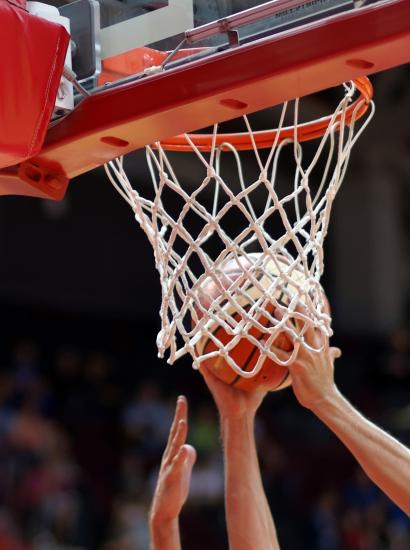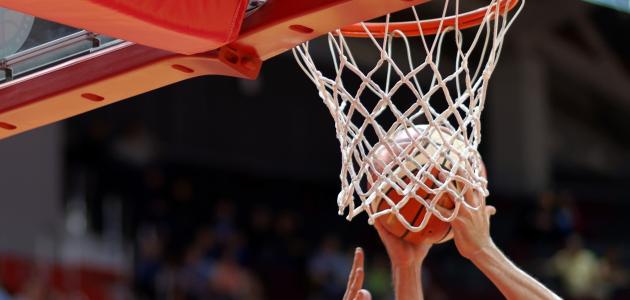- Economics
- US Labor Market
- State & Local
- California
- Law & Policy
- Civil Rights & Race
If you’re a fan of the National Basketball Association, you’re probably aware of two California trends.
The defending champion Golden State Warriors are in the playoffs for the seventh consecutive year.
And the Los Angeles Lakers, at one time the league’s marquee franchise, missed the playoffs.
For a sixth consecutive season.
Despite acquiring the talents of this century’s greatest player, LeBron James.
This wasn’t the Hollywood ending the Lakers had anticipated. The plot called for LeBron to carry his new team to the postseason, where it would maybe last a round or two before gracefully bowing out, and then for the team to add another superstar in the off-season to position the Lakers for a title run next season.
Only, that wasn’t how the drama played out.
“King James” suffered the first significant injury of his professional career (a groin strain on Christmas Day that kept him off the court for five weeks). Midseason trade rumors reportedly ruined the team’s chemistry. Once the regular season ended, the Lakers’ team president resigned (that would be the legendary Magic Johnson, who discovered that running an NBA franchise wasn’t as fun as schmoozing at Dodgers games). Three days after Magic’s disappearing act, the Lakers’ head coach was unceremoniously dumped.
But the funny thing about LeBron’s “failed” season, it was also a big hit—off the court.
And for that, you can credit what brought James west in the first place: not so much winning rings as cashing in on Southern California’s celebrity-fueled economy.
It wasn’t a surprise last year when James inked his four-year, $154 million deal with the Lakers. He’d already bought a second mansion in tony Brentwood. And he’d previously dabbled in films (a well-received comedic turn in 2015’s Trainwreck).
But LeBron’s presence in the Southland has taken his business portfolio to new heights.
James is the cofounder of Uninterrupted, a multimedia venture that serves up documentaries, web series, and podcasts about athletes (it received a $15.8 million investment from Time Warner in 2015).
James also has his own production company—SpringHill Entertainment—that’s working on a remake of the 1990 movie House Party, as well as original television content.
And there’s a return to the silver screen in progress. Rather than working on his game this summer, LeBron James instead will be working on his lines as the star of Space Jam 2 (the movie having the same problem the Lakers encountered: getting big-name talent to team up with LeBron).
In all, the long-term strategy is to build a Southland-based business empire on the north side of $1 billion.
Only, to make that happen, LeBron James might have to stay tethered to Los Angeles. In which case, the destiny of the “king” of professional basketball might not be as the monarch of a sports dynasty. Instead, think of him as a six-foot, eight-inch bird in a gilded cage (well, a cage painted in Lakers purple and gold): a major success in business, but in basketball stymied by a weak supporting cast and a dysfunctional front office.
Nearly 370 miles north of Staples Center, and the scene of the Lakers’ collapse, sits Oracle Arena, home to the Golden State Warriors and another former league most-valuable player who’s played the California game better than LeBron James: Kevin Durant.
Like James, Durant relocated to the Golden State in search of championship rings. Indeed, he’s won two titles with the Warriors since relocating to the Bay Area in 2016—and may collect a third in June before presumably “taking his talents” to a new team as a free agent this summer (the guess is the New York Knicks, given that Durant’s production company has set up shop in the Big Apple).
Like James, Durant came to the state in search of gold. Which he found, in true Northern California style.
Whereas James has built his fortune around entertainment, Durant’s calling card is technology, venture capital, and the start-up world.
Per an ESPN report from a year ago, the star’s Durant Company “claims early-stage investments from $250,000 to $1 million in roughly 30 companies through a network of venture capitalists, including online digital-currency platform Coinbase, spare-change app Acorns, cloud-computing startup Rubrik, drink company WTRMLN WTR, fast-casual pizza chain Pieology, bike-sharing company LimeBike and delivery company Postmates.”
Durant seemingly has blended in with the Bay Area culture—so much so that he drives a Tesla and hobnobs with Silicon Valley A-listers. A friend of mine who works in venture capital and has seen the relationship up close explains it thus: “Kevin respects their knowledge; the VCs want to score cool points with their kids by being in his presence.”
(Durant’s ties to venture capital have also connected him to the college-placement scandal in a very roundabout fashion.)
Durant’s not the only NBA player past or present who’s discovered Silicon Valley as an alternate path to riches. But unlike “King” James, he’s shown that it’s possible to succeed both on off the court—and on it—as a California resident.
As such, it adds a wrinkle to the NBA’s summer of free agency, in which not only the Lakers are looking to add a big name but so too the Los Angeles Clippers (who made the playoffs) and perhaps maybe the Warriors as well, if they fail to resign Durant.
Is the saga of LeBron James in California—richer off the court but poorer on it—a selling point or a cautionary tale for players considering a move to the Golden State?
If Kevin Durant gets another happy ending this summer, does another prominent player take his roster spot, looking to cash in on the Warriors’ talent and the Bay Area’s riches?
It sounds like the stuff of a good documentary—one that LeBron James and Kevin Durant, thanks to their California riches, could easily afford to produce.
















